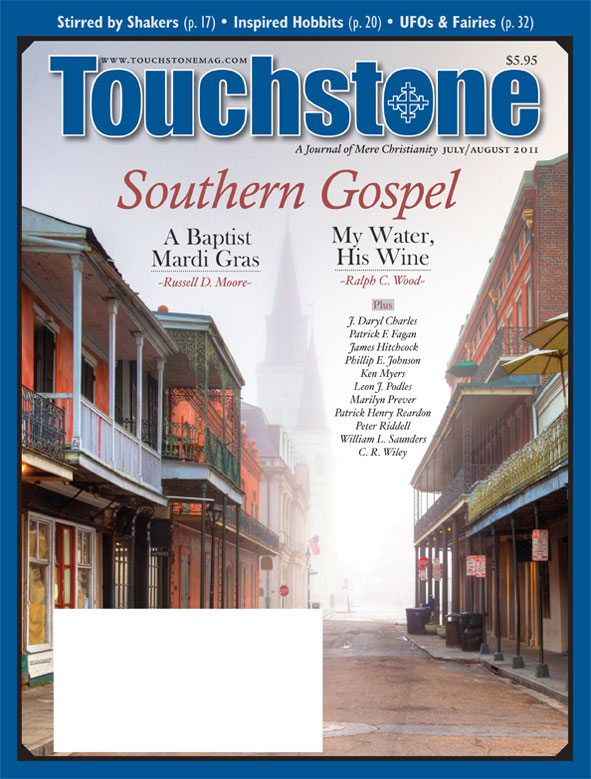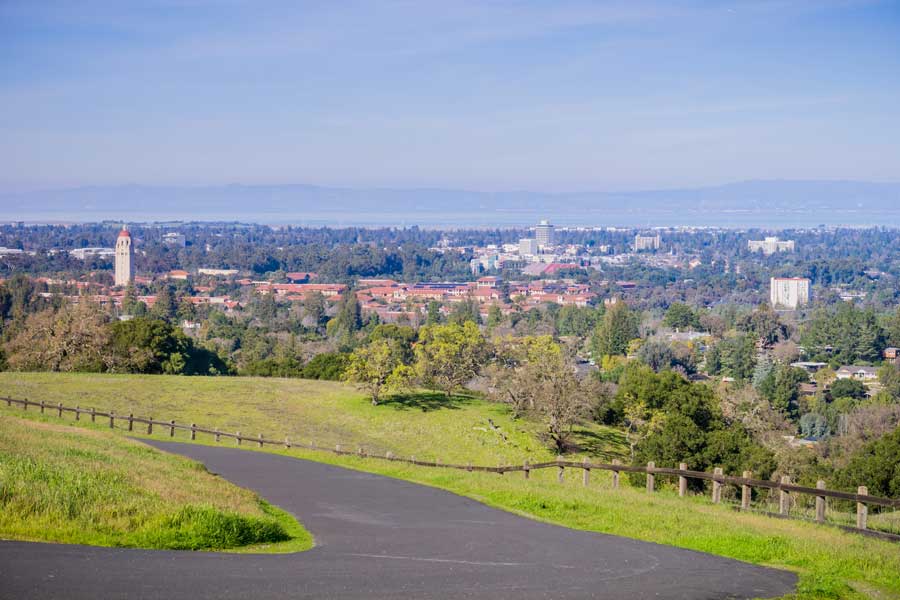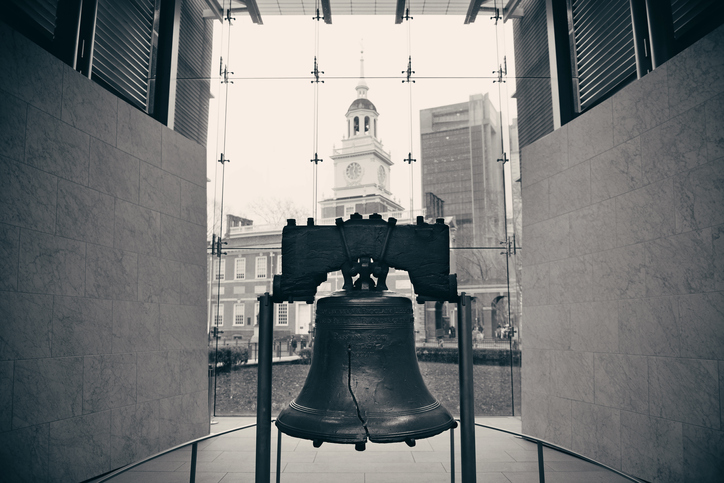An Inconvenient Task
More Than Workers Migrate Between the U.S. & Mexico
Nearly half-a-century ago, when I was a student in Italy, I loved to spend the summers in France. Memory, I confess, returns readily to that period. Indeed, one of those golden days comes forcefully to mind as I compose this page.
It was a bright and beautiful morning, as I hiked along a country road down in the Savoy region. Coming around a corner on a hill, I thought I discerned a conversation in Italian somewhere up ahead; it was, in fact, a group of workers resurfacing the road. Hearing Italian in that region would not be too surprising, given that Savoy once belonged to the Kingdom of Sardinia, and for centuries that melodious southern tongue was not unknown in the western Alps.
When I greeted the workers, however, and engaged them in conversation, I discovered that they were not Savoyards at all. They came from down in Italy itself—Genoese, if memory serves. When I inquired how they happened to be working on a country road in France, one of them looked at me quizzically and said, “Pensa che un francese si abbasserebbe a questo tipo di lavoro?”—“Do you think a Frenchman would stoop to this kind of work?”
The comment was a tad jolting. Back in America, I knew, road maintenance was a coveted job for young men my age. (My first salary—lifting heavy items at a furniture store—had been 75 cents an hour, a princely sum for a high-school student.) Besides, for those who, like myself, were born during the Depression, it was impossible to imagine that any work was beneath anybody. I suppose my sensitivity to social distinctions, back then, needed some refinement.
The Plight of Migrant Workers
After I returned to America, I thought about those migrant Italian workers, and, in the years that followed, all Americans became better educated regarding the social and cultural problems associated with migratory labor. There were simply not enough local people to harvest the much larger farms in the United States, and thousands of migrant Mexicans were recruited for the task. Cesar Chavez and the United Farm Workers—along with popular supporters like Joan Baez—made sure Americans’ moral attention did not stray too far from the concerns of those laborers.
During the decades that followed, I suppose I fell into the habit of thinking of America’s southern border mainly in connection with migratory labor. Like any public-spirited citizen with even a tiny sense of justice, I took a decent interest in the welfare of those who came from Mexico to work here on farms and in orchards at certain seasons. Outside of the voting booth, however, I don’t recall that I did much about it. (Did I really take part in a parsley boycott one year? No, it was grapes, I think. The faint recollection of parsley likely has to do with a song we sang that year—from a Simon and Garfunkel album—while we abstained from grapes.)
In recent times, however, everything has changed in respect to migrant harvesters, and I cannot recall when I last heard a voice raised in their support. Conditions seem to be harder for them all around. Amid reports that those who come to the States with H2A and H2B visas (created by the U.S. government to regulate seasonal employment) are more likely to suffer abuse, it is no longer taken for granted that potential employers will pay the expenses associated with those visas. Human trafficking has become common, and few of the workers who make it through belong to unions—one in ten for strawberry pickers, I’m told.
Still, they come, in hopes of sending back money to family members left behind. Even as I hear politicians speak about a “path to citizenship” for these workers, I truly wonder how many of them are interested in U.S. citizenship. I do know that, if my family were starving somewhere else, citizenship in a new country would be my absolutely last concern.
More Border Problems
The real problems of migrant laborers have become lost in the forest of other concerns Americans have about the border with Mexico—massive illegal immigration into almost all parts of the United States, public safety in our border areas, a greatly expanded border patrol, more recently an extensive fence, strained political relations with Mexico, and growing calls (mainly from radio hosts and TV pundits) to send down the National Guard to restore order. Meanwhile, Mexico suffers civil unrest so severe that it threatens soon to engulf that whole beleaguered country.
Perhaps most distressing to a sane mind is the unconscionable cynicism of our current political leadership, which speaks, in utopian terms, of a “comprehensive immigration policy” and regards all those displaced people mainly as a fresh source of political power. That’s just what our new immigrants need—further exploitation.
In the midst of this confusion, it is difficult to remember that an open border existed between the United States and Mexico for much of our history. Only in 1924—to enforce Prohibition—did our country establish the Border Patrol, and, during the decades following World War II, that border was very easy to cross. Even in the early 1990s there were only about 2,500 border agents, unlike today, when there are 20,000.
Mexican Victims of American Vice
The plight of migrant workers from the south has especially deteriorated by reason of the current “gang wars” in the Mexican drug trade, and it is not uncommon to hear expressions of anxiety that those troubles are starting to “spill over” into our country.
The real problem, as far as I can tell, is just the opposite: It began in the United States and then “spilled over” into Mexico. That is to say, there would be no drug wars in Mexico—no wholesale murder of Mexican citizens—were it not for the drug trafficking up here, north of the border. Take away that big northern market, and the big southern problem disappears.
Indeed, if the conflict in Mexico is truly a war, it is a war in which the United States has assumed the burden of financing both sides: Every dollar that goes from our national treasury to support the anti-gang efforts of the Mexican government is matched by another dollar from some United States citizen who purchases illegal drugs. That is to say, our northern drug problem has spilled over, violently, into Mexico. To put the fact as brutally as the circumstances warrant, the poorest people in Mexico are paying, with their lives, for the vices and self-indulgence of their northern neighbors.
It should be obvious that there is no political solution to this disaster. It is a clear case where politics and economics lie very much downstream of culture. The abuse of narcotics in this country is, first of all, a spiritual and moral symptom, not a law enforcement problem. Surely this concern merits the most serious moral concern of the American churches.
In this instance we have a glaring example of a cultural dilemma in one nation causing an economic, social, and political disaster somewhere else. Mexico has every right to ask, what are we, up here, going to do about it? To re-phrase the question put to me that day, long ago, on a country road in the south of France, ¿Se inclinarían los Norteamericanos a este trabajo?
—Patrick Henry Reardon
Patrick Henry Reardon is pastor emeritus of All Saints Antiochian Orthodox Church in Chicago, Illinois, and the author of numerous books, including, most recently, Out of Step with God: Orthodox Christian Reflections on the Book of Numbers (Ancient Faith Publishing, 2019).
subscription options
Order
Print/Online Subscription

Get six issues (one year) of Touchstone PLUS full online access including pdf downloads for only $39.95. That's only $3.34 per month!
Order
Online Only
Subscription

Get a one-year full-access subscription to the Touchstone online archives for only $19.95. That's only $1.66 per month!
bulk subscriptions
Order Touchstone subscriptions in bulk and save $10 per sub! Each subscription includes 6 issues of Touchstone plus full online access to touchstonemag.com—including archives, videos, and pdf downloads of recent issues for only $29.95 each! Great for churches or study groups.
Transactions will be processed on a secure server.
more from the online archives
calling all readers
Please Donate
"There are magazines worth reading but few worth saving . . . Touchstone is just such a magazine."
—Alice von Hildebrand
"Here we do not concede one square millimeter of territory to falsehood, folly, contemporary sentimentality, or fashion. We speak the truth, and let God be our judge. . . . Touchstone is the one committedly Christian conservative journal."
—Anthony Esolen, Touchstone senior editor









